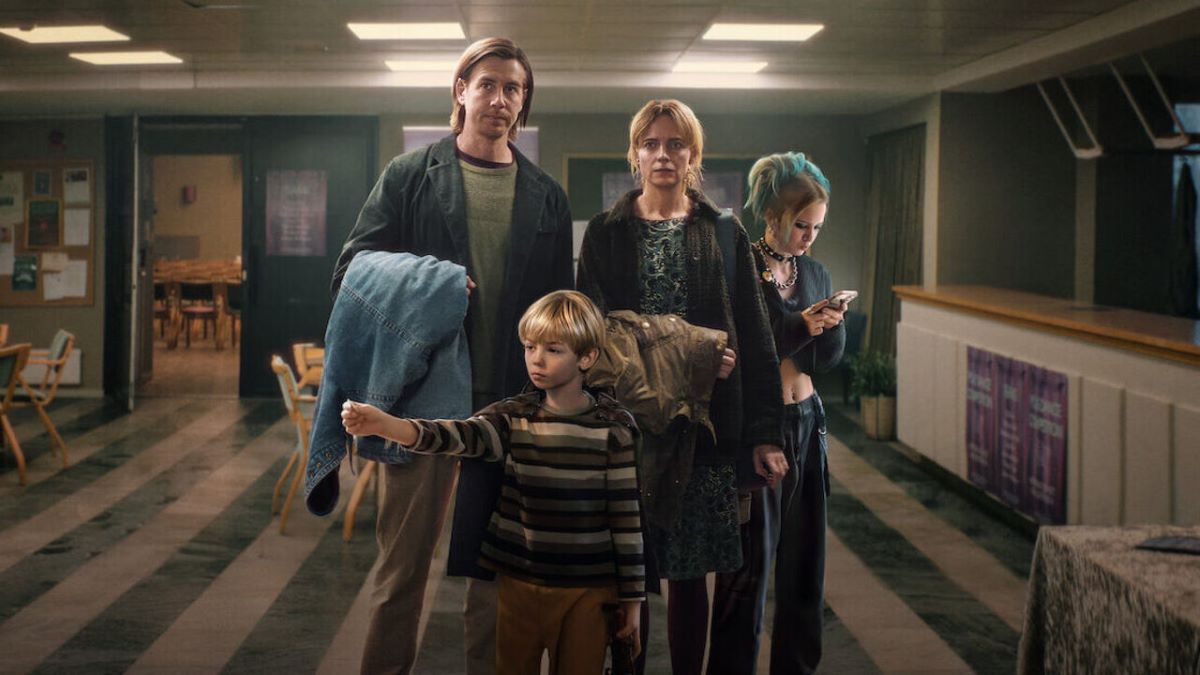Love stories are an utterly fascinating cinematic species. On the one hand, they can be far too easy to romanticize and are even more susceptible to tired formulas, but on the other hand, love is perhaps the single most fundamental ingredient in great storytelling, so is it any wonder that using it as both the base and the spice only has so many results?
It’s for this reason that when we do sink our teeth into a love story that truly puts you through the wringer, it’s that much more satisfying of a watch, and if you’re like Let Go and layer a multitude of emotional nuances on top of it all, that’s even better. What’s even better than that, however, is that its presence on the Netflix charts means many people have enjoyed it, and many more will get to.
Per FlixPatrol, the Swedish romantic drama is currently shoring up the bottom of the United States’ Top 10 film charts on Netflix at the time of writing. Meanwhile, the similarly-titled rom-com Just Go With It, starring Adam Sandler and Jennifer Aniston, settles in at fifth place, as if the world needs to be reminded why it won two Golden Raspberry Awards.
Let Go stars Josephine Bornebusch (who also wrote and directed the film) as Stella, mother to teenage daughter Anna and young son Manne, and wife to Gustav (Pål Sverre Hagen). Gustav, who has distanced himself from his family, wants a divorce, but Stella strongarms him into taking a trip together as a family to watch Anna compete in a pole dancing competition. As the interpersonal trials mount alongside simple-yet-profound revelations, the family experiences a period of growth that’s as excruciating as it is cathartic.

Let Go is a thoroughly uncomfortable movie by design. From the jump, none of the characters are set up in a way that makes you want to root for them. Anna is venomous, Gustav is having an affair and seems clueless as to how to be a husband or a dad, and Stella appears to be selfishly leveraging Gustav’s fatherly guilt in hopes of putting off the divorce. Indeed, for a romantic drama film, there’s not much romance going around here.
But as the film goes on, we learn more and more about these characters (particularly Stella) that not only completely recontextualizes why they behave the way they do, but adds additional nuances to their dialogue that makes every conversation all the richer. This is only exacerbated when you consider how much these characters know and do not know when they say the things they do, and further consider how much anger could be spared if they took the time to strip down each other’s walls and give themselves the attention they need.
The subtlety of its execution is somewhat undermined by Gustav’s opening monologue, in which he, a couple’s therapist (itself a symbolic occupation in the context of the film), monologues about communication to a rather unreceptive pair of patients. But overall, Let Go stands tall as an ode to all the ways we bone-headedly refuse to make things easier for ourselves, and at once reminds us just how necessarily harsh, uncomfortable, and, above all, beautiful love really is.
